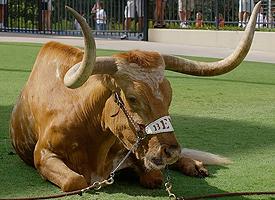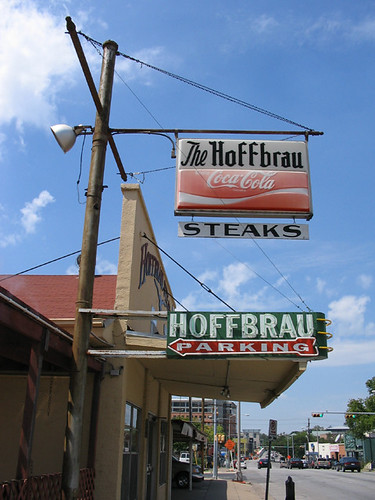"The people need good men," said Homer, smiling.
In a chapter of her debut novel,
Getting Mother's Body, devoted to a monologue by preacher Roosevelt Beede, Pulitzer-winning dramatist
Suzan-Lori Parks offered the best summation I think I've ever read on the struggle between participating in public, political life while maintaining one's spiritual grounding.
Roosevelt's take: Most people can't do it.
He ponders the difficulties internally as he listens to his younger cousin Homer, a wealthier, more educated man with political aspirations, driving west on I-10 during the early '60s. Set in West Texas, the novel tells the story of the family traveling to Arizona to dig up "treasure" supposedly buried with one of their kin, and Roosevelt for a time finds himself riding with Homer in his convertible during their adventure.
This particular quote from Roosevelt Beede in Parks' wonderful book has been ringing in my head, now, for a couple of months:
"The people need good men," Homer says smiling at me. And I know then that he will make a good politician, not a preacher, cause he ain't been called, but a politician, one who ain't been called but, through the force of his own personality, calls others to him. That's largely the difference. A man of God is called by God. A man of the people calls the people. Some men are called by God to lead the people. But that's rare. A man of the people thinks the people are calling him but it's just his own voice, overly loud, shouting his own name and hearing it echo back to him through the open mouths of the people, mouths open in awe and wonder watching a man shout his own name loud. A man of God has his mouth shut until God opens it, forces it open sometimes. And sometimes forces it closed.
Politicians are an easy target, and it'd be simple to focus that quote's venom on the array of stuffed shirts and fools (not exclusive categories) running for Governor, for example, and use Parks' lens to parse their motives.
But as near-daily public writers, I think bloggers dance the same line every time our fingers strike a keyboard, especially those of us blogging on political or policy topics: Is what I'm doing for me, for my own ego gratification, or is it for some higher purpose? If the latter, is that higher purpose the pursuit of truth, and if not, will the truth be compromised? Every blogger answers such questions, consciously or not, each time they sit down to write. (Parks, BTW, advocates standing while writing - "dancing," actually. She says every writer should try it once before they die.)
That said, neither can others answer those questions for the blogger - not the most sympathetic fan nor the harshest critic. One's motives are one's own and frequently more complicated, even, than the writer understands.
For people who generate as much prose as
I do on Grits, writing is essentially a compulsion, if we are to be honest. Though it's not an original sentiment, I tell young folks who ask me how to write professionally that they shouldn't if they have any choice. A wise person would never undertake the task unless the compulsion to write is simply so great they cannot
not write - that's the only reason to endure the negative aspects of the hazard-filled, isolating life choice that is truth-telling in print.
Parks' prose challenges us to go further, to ask, what is that compulsion's source, and is it healthy and good for everyone or indulgent and narcissistic? Is it self-promoting, or morally and spiritually grounded? A meaningless dalliance or a calling?
As "grassroots media," blogs almost by definition style themselves as the "voice of the people." But don't even, perhaps especially, the most popular bloggers risk that the people's affirmation is really "just his own voice, overly loud, shouting his own name and hearing it echo back to him through the open mouths of the people, mouths open in awe and wonder watching a man shout his own name loud"?
Some days, that's true for all of us. But I'd like to think that, on our best days, bloggers are doing something more important and better than that - providing a reflection on the world instead of a reflection, merely, of our own self-involvement.
Down on the end of the long tail where
Grits for Breakfast, Huevos Rancheros and most other blogs reside, certainly there's room for many motives - to co-opt a phrase from Mao: Let a thousand flowers bloom. In one sense there are no bad reasons for blogging, but I often feel there are many unexamined ones, sometimes my own included.







